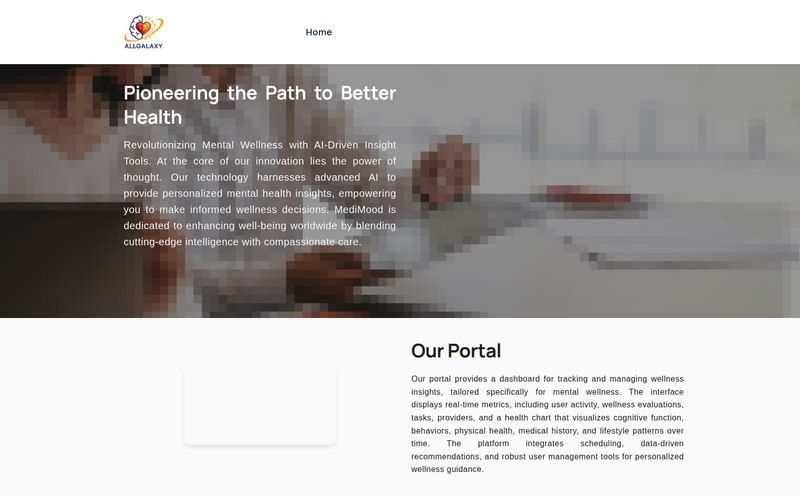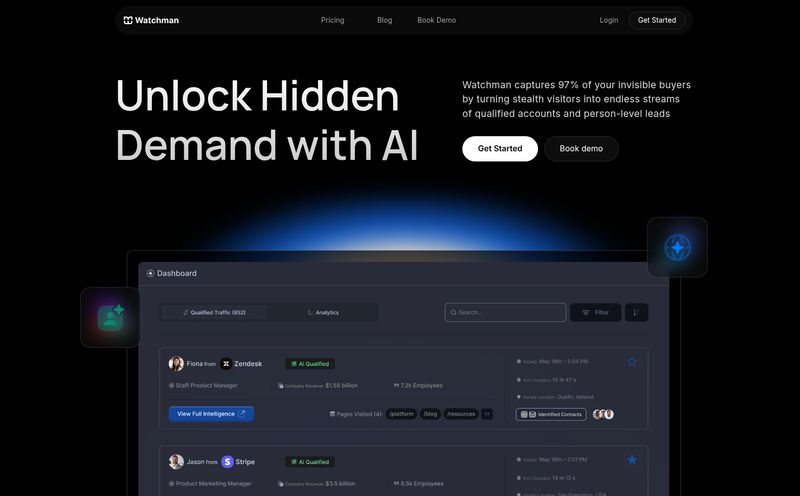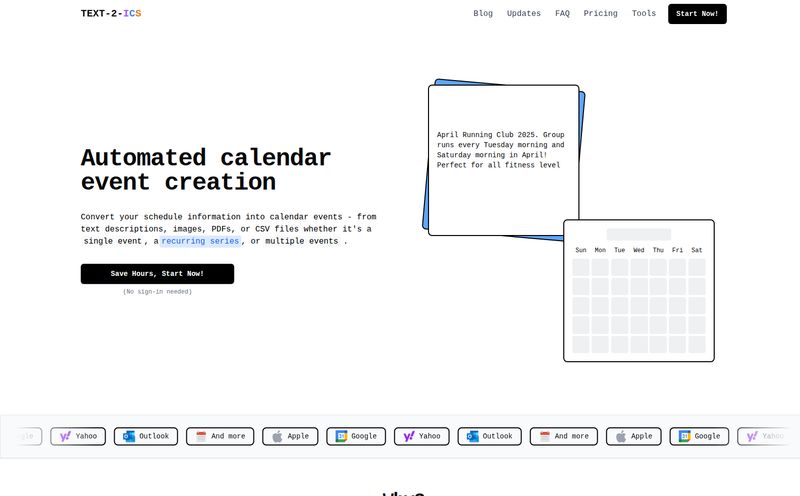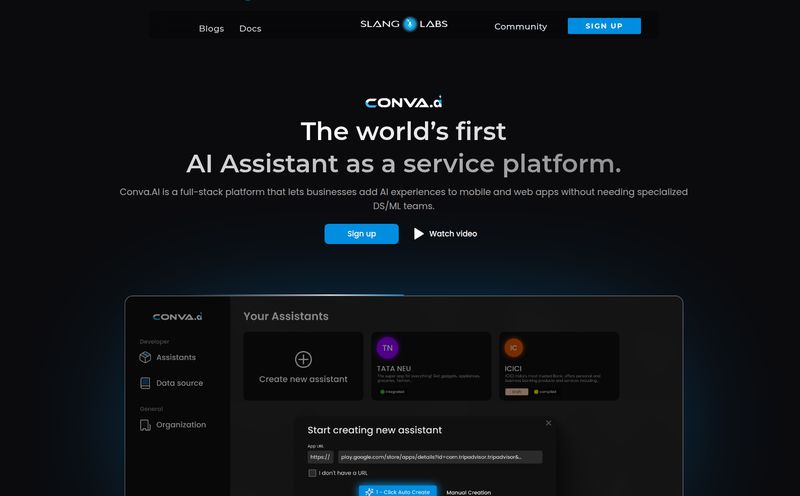Well, folks, it’s a tale as old as Silicon Valley... but with a much better mascot. If you’ve tried to visit the OtterTune website recently, you weren't greeted by a slick landing page or a login portal. Instead, you found a cartoon otter in a jail cell.
The caption reads: “OtterTune (2020–2024). The company is dead. DJ OT is in prison for a parole violation.”
Talk about going out with a bang.
It’s always a bummer to see a cool piece of tech go under, and OtterTune was definitely one I had my eye on. For those of us who live and breathe performance tuning and cloud infrastructure, it felt like a glimpse into the future. A future where we could offload one of the most tedious, arcane, and frankly, soul-crushing parts of our jobs to a smart AI. So, let's take a moment to look back at what OtterTune was, what it promised, and maybe learn a thing or two from its short but impactful life.
What in the World Was OtterTune, Anyway?
In a nutshell, OtterTune was an AI-powered service designed to automatically optimize MySQL and PostgreSQL databases. Specifically, it focused on those running on Amazon’s cloud infrastructure—namely RDS and Aurora.
Think of it like this: your database has hundreds of "knobs" and "levers" (configuration settings) that control how it behaves. Things like memory allocation, query caching, and I/O settings. Getting these settings just right for your specific workload is a dark art. It’s a bit like trying to tune a grand piano in the middle of a rock concert. Most of us just use the default settings or copy-paste some "best practices" from a Stack Overflow post from 2012 and pray for the best.
OtterTune promised to be the master tuner you always wished you had. It would connect to your database, watch how it performed under your real-world traffic, and then use machine learning to figure out the absolute best configuration. No guesswork. No prayers. Just data-driven optimization.
The Magic Under the Hood
The team, which spun out of the prestigious Carnegie Mellon University, wasn't just throwing around buzzwords. Their approach was genuinely clever. It wasn't just about tweaking a few settings. The service monitored a whole suite of things:
It looked at Configuration Knobs, the countless settings like work_mem or innodb_buffer_pool_size that give DBAs nightmares. It analyzed Cloud Resources and could suggest changes to your instance size, helping you scale up or down without overprovisioning. On top of that, it reviewed Indexes and Tables by analyzing query performance to suggest new indexes that could drastically speed things up. The AI could also identify slow or inefficient SQL Queries that were bogging down the whole system. For my fellow PostgreSQL nerds, you know the constant battle with Autovacuum settings. OtterTune aimed to tame that beast, too.
This was the kind of automation we dream about. It was a proactive approach, not a reactive one. Instead of waiting for your site to crash on Black Friday to realize your database was misconfigured, OtterTune would have already fixed it.
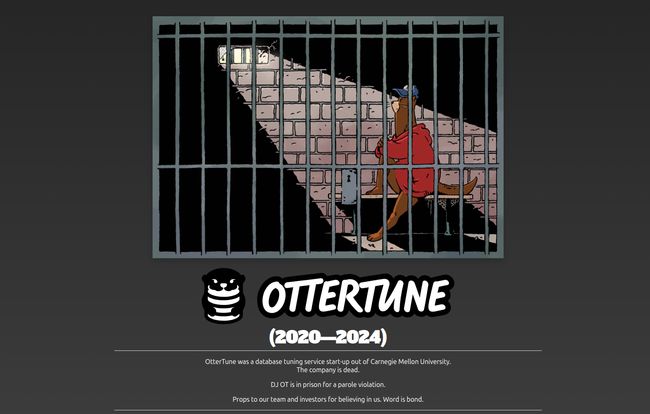
Visit OtterTune
The Big Promises: Ludicrous Speed and Lower Bills
So what was the payoff? OtterTune made some pretty bold claims, but they were the kind that make a CFO's ears perk up. They touted performance improvements of up to 4x and cloud cost reductions of up to 50%.
Let's be real, in a world where AWS bills can spiral out of control faster than a celebrity scandal, those numbers are huge. The idea of paying less for a database that runs faster sounds like a fantasy. But that was the core value proposition. By perfectly tailoring the database to its workload and right-sizing the resources, you could stop wasting money on oversized instances and wasted CPU cycles.
For any growing business, that’s not just a nice-to-have; it's a competitive advantage. It means a snappier experience for your users and more money in the bank for, you know, other things. Like paying developers.
A Carnegie Mellon University Brainchild
It’s important to mention that this wasn't just some fly-by-night operation. OtterTune was born from serious academic research at Carnegie Mellon University's Database Group, a place known for producing some of the sharpest minds in the field. This gave the project a level of credibility that many startups lack. You knew the machine learning models weren’t just a bunch of if/else statements; they were built on years of peer-reviewed research.
I’ve always had a soft spot for companies that come out of academia. There’s a certain purity to their mission, at least initially. They're often trying to solve a genuinely hard problem because it's intellectually interesting, not just because there's a potential billion-dollar exit. OtterTune felt like that.
So, What Happened? The End of an Era (2020–2024)
And yet, here we are. The website is a tombstone, and DJ OT the otter is doing hard time. What gives?
The final page gives us a humorous, if not very detailed, explanation. “The company is dead.” It’s a stark and honest message in an industry that loves to "sunset" products or "pivot" into oblivion. I respect the directness.
"Props to our team and investors for believing in us. Word is bond." - OtterTune's final message
We can only speculate on the reasons. The startup world is brutal. Even with brilliant tech and a solid team, finding sustained product-market fit is incredibly difficult. Maybe the sales cycle was too long. Maybe the cost of acquiring a customer was too high. Perhaps the problem, while very real for engineers, wasn't something that companies were willing to pay enough for, especially with platform-native tools like Amazon RDS Performance Insights getting better over time. Or maybe, just maybe, they got an offer they couldn't refuse and are now on a beach somewhere, leaving DJ OT to take the fall.
Whatever the reason, its demise is a reminder that technical excellence alone doesn’t guarantee success. A painful lesson many of us have learned the hard way.
Where Do We Go From Here? Alternatives to OtterTune
With OtterTune out of the picture, where does that leave those of us still wrestling with our databases? The dream of fully automated, AI-driven tuning isn't dead, it just lost a major player. Here are a few places to look if you were hoping OtterTune was your silver bullet:
- Amazon RDS Performance Insights: This is Amazon’s native tool. It's not as automated as OtterTune was, but it's incredibly powerful for diagnosing performance bottlenecks directly within the AWS console. It's the first place you should be looking.
- EverSQL: Focused more on the query optimization side of things, EverSQL can automatically rewrite your SQL queries to be more efficient and suggest index improvements. It's a great tool for developers looking to speed things up.
- pganalyze: For the PostgreSQL crowd, pganalyze is fantastic. It provides deep insights into everything from query performance to vacuum stats. Again, it’s more of a diagnostic tool than a fully automated tuner, but it gives you the data you need to make intelligent decisions.
- DBtune: This is another project that seems to be in the same spirit as OtterTune, also with academic roots. It's one to watch to see if it can succeed where OtterTune didn't.
The space is still evolving, and while no one seems to offer the exact "set it and forget it" solution that OtterTune aimed for, these tools can get you a good part of the way there.
The legacy of OtterTune isn't just a funny 404 page. It’s a proof of concept. It showed that AI can be effectively applied to the gnarly, complex problem of database tuning. It pushed the conversation forward and likely inspired the big players like AWS and Google Cloud to invest more in their own native observability and tuning tools.
It’s a bittersweet end. We lost a promising innovator, but the ideas they championed will live on. So here's to DJ OT. May his parole hearing come soon.
Frequently Asked Questions about OtterTune
What was OtterTune?
OtterTune was an AI-powered service that automatically optimized the performance and cost of MySQL and PostgreSQL databases running on Amazon RDS and Aurora. It used machine learning to analyze database workloads and recommend optimal configurations.
Why did OtterTune shut down in 2024?
The company has not released an official public statement detailing the exact reasons. The website simply states, "The company is dead." Startups can fail for many reasons, including challenges with funding, customer acquisition, or finding a sustainable business model, even with superior technology.
What databases did OtterTune support?
OtterTune was built to support two of the most popular open-source databases: MySQL and PostgreSQL, specifically for deployments on Amazon Web Services (AWS) platforms like RDS and Aurora.
Are there any good alternatives to OtterTune now?
Yes, while no direct replacement offers the exact same automated tuning, several tools can help. Strong alternatives include Amazon RDS Performance Insights for diagnostics, EverSQL for query optimization, and pganalyze for deep PostgreSQL analysis.
What was the story with the "DJ OT" mascot?
DJ OT was the otter mascot for OtterTune. The final landing page humorously states he is "in prison for a parole violation," which is just a creative and funny way for the company to announce that they have ceased operations. It reflects the quirky and personable brand they built.
Was OtterTune a free service?
OtterTune was a commercial service and not free, though they may have offered trials. The exact pricing structure is no longer available since the company's website is offline. The goal of the service was to provide a return on investment through significant cloud cost savings and performance gains.
Conclusion
It's easy to get cynical when a promising company closes up shop. But I prefer to see the OtterTune story as a positive, if cautionary, tale. It was a bold attempt to solve a problem that plagues countless tech organizations. They built something genuinely innovative, backed by real science, and for four years, they gave it their all. The fact that it didn't make it to the finish line doesn't erase the brilliance of the attempt. Their work undoubtedly pushed the industry forward, and for that, they deserve a tip of the hat. Rest in peace, OtterTune. Your tuning knobs are quiet now.
References and Sources
- OtterTune on GitHub: https://github.com/ottertune
- Amazon RDS Performance Insights: https://aws.amazon.com/rds/performance-insights/
- EverSQL: https://www.eversql.com/
- pganalyze: https://pganalyze.com/
- DBtune Project: https://dbtune.cs.cmu.edu/
